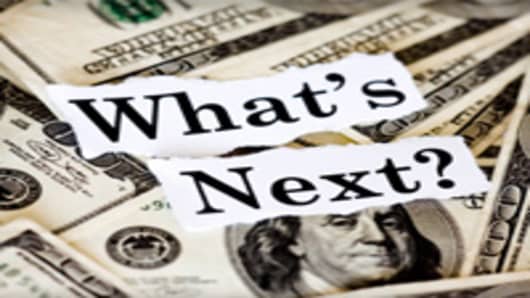Certain events would put me into a position in which I could not go on with the old language games any further. In which I was torn away from the sureness of the game.
—Wittgenstein, “On Certainty”
Go on. Try to categorize the current condition of the U.S. economy. Is it in recession? Well, no. ... Recovery? Expansion? Technically, perhaps, but the terms feel a bit misplaced here, in the land of 8.1 percent unemployment; a bit hollow.
What is it, then? Let’s turn to the experts, shall we, the pros — only they haven’t the foggiest clue either. There are the Wall Streeters — take the folks over at Citigroup, who caution that both earnings and economic growth in the U.S. are “dangerously close to stall-speed,” and that “we should expect a rapid decline” in the pace of both if current feeble growth levels are breached.” That is late-cycle talk. The kinds of warnings that were circling in 2007-08, when most could sense the cycle had overstayed its welcome, that the party had long since ended.
This late-cycle stuff today, though, doesn’t sit as well. “Mid-cycle” is the term strategists will more often throw out, when pressed to situate themselves; and it’s rarely offered with much conviction. Econ-types, except for the perennial gloom-and-doomers, tend to take the even longer view, reminded perhaps of the similarly hairy days that followed the last few recessions, when in the early days of “recovery” it often felt as though the economy was just barely carrying forward momentum — similarly close to slipping back into contraction. High unemployment, low inflation; these are “early-cycle” markers, they'll argue. Relax! At any moment now — naturally, the moment it’s least expected — job growth will gradually gain traction (some murmur it already has) and earnings will perk up. The Federal Reserve will have to scurry to fend off inflation. As for that existential angst? On that, we’ll look back and laugh.
That moment, that certainty, that reassurance ... its absence grows more glaring by the day. In its place is a shared sense of skepticism, insecurity; the deep discomfort that comes with not being able to locate one's place in the world. Because, I would venture, the world has shifted, the so-called "cycle" has been eradicated, or has fundamentally changed. The game suddenly isn’t so certain. The comfortable terminology of the past — those recessions and recoveries — no longer fits, the language feels awkward, passe.
Why does this terminology linger then? Because — and this is the key point — we don’t know what to replace it with. We are still struggling to come to terms with this new landscape, this new state of affairs that is economic, but also social, personal — macro but also micro. Growth isn’t there, but it isn’t gone, either; it’s never been more critical and yet never felt less relevant. The wonks, the central bankers, have finally figured out how to make the system work. Trouble is, the system itself seems a relic of the past.
“The upshot is simple. The elevated prices of financial assets have already eaten the future,” said economist John Hussman, pointing to the ever-lower returns offered by ever-pricier financial products, whose ultimate value rests not in what they can be sold for today but rather the economic value they are supposed to generate over time. Is he right? Possibly. An alternative view is that expensive financial assets are the price to pay for aggressive central bank policy that has saved the world, or at least America, from the debt-deflation trap that is consuming the likes of peripheral Europe, roiling living standards and fomenting social unrest that may yet turn more violent.
But even if the Hussmans of the world are right, the real question, perhaps, is what does it matter? What concept of “the future” do people today have, after all, when even the present defies definition?
“We no longer have recourse to grand narratives,” that don of postmodernism, Jean-Francois Lyotard, famously asserted. At least here, the view seems warranted. If we are fumbling for the right language to describe our current circumstance, it is perhaps because we have lost the narrative. Indeed, as Beckett once put it: “...there is nothing to express, nothing with which to express, nothing from which to express, no power to express, no desire to express, together with the obligation to express.”
There are more than a few on Wall Street — or on any street — these days with whom that might deeply resonate.
—By CNBC’s Kelly Evans
Follow Kelly Evans on Twitter: twitter.com/Kelly_Evans
Questions? Comments? Email us atNetNet@cnbc.com
Follow NetNet on Twitter @ twitter.com/CNBCnetnet
Facebook us @ www.facebook.com/NetNetCNBC


